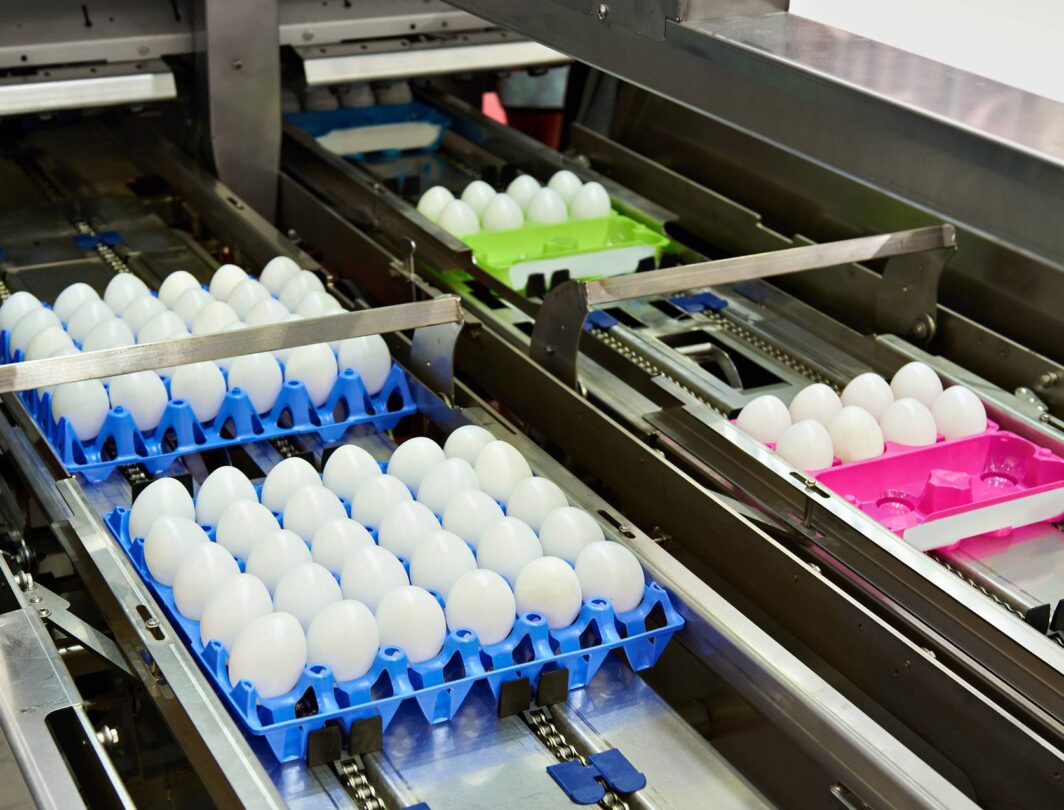Best practices for a mock recall for your food business
With the rising number of food safety incidents, a mock recall is nothing short of compulsory for manufacturers serious about food safety.

Implementing a mock recall program for your food business should be a priority. With the rising number of food safety incidents, a mock recall is nothing short of compulsory for manufacturers serious about food safety. Food recalls are never convenient and the list of food companies taking longer than desired to remove unsafe products from the supply chain is a testament to this fact. A major issue is that manufacturers often underestimate the number of moving parts involved in a recall.
A look into food recall regulatory requirements yields some interesting revelations. Not only does the FDA expect detailed information about the product to be recalled, including a full consignee list, you are required to contact all customers who may have purchased the product.
Clearly, if provisions for this information were not made prior to the incident, it would be difficult to meet all the demands. The solution is a proactive approach to food safety. Mock recalls provide the perfect training ground and have been described as food safety fire drills.
Webinar: ERP for the Food and Beverage Industry
Discover how best-in-class companies leverage their ERP to efficiently run their food and beverage operations.

Which companies should perform mock recalls?
The Food Safety Modernization Act contains a Preventive Controls rule which specifies that any facility that identifies a hazard requiring a preventive control must have a written recall plan. If this rule applies to your business, then a mock recall is necessary to determine the effectiveness of your recall plan.
An often asked question is whether there is a regulatory requirement for a mock recall. There’s none. The FDA does not require companies to perform a mock recall. The requirement is for a recall plan and a notification on the Reportable Food Registry, within 24 hours, once a safety issue is confirmed.
So, why should you perform a mock recall if they are not mandatory? It’s simple: mock recalls prepare you for an actual recall. In the food industry, the conversation is no longer “if a recall will happen” but “when a recall will happen.” Having a written recall plan is one thing, knowing that it works is another. A mock recall tests your ability to successfully execute the recall plan and shines the spotlight on the areas that need improvement.
A mock recall helps you achieve the following:
- Test your traceability system by tracing a product’s journey within your supply chain
Verify your communication systems (contact information of your recall personnel, suppliers, and consumers). Using an ERP (Enterprise Resource Planning) system, will help make sure your information stays accurate, up-to-date and easily accessible by consolidating all critical data in one place
Discover and modify aspects of the recall plan that prove problematic or challenging
Preparing for a mock recall
Certain structures must be put in place for a mock recall (or an actual recall) to take place. The first is a traceability system.
Recalls (real or simulated) involve two phases:
Identifying the item to be recalled, and
Retrieving the product from the market.
If you are unable to trace a product through your supply chain, then a successful recall would be impossible. An effective traceability system should identify the unit to be traced (a lot, batch or single product unit) and account for all transformations to the unit across the supply chain (mass balance).
The traceability system is perfected through separate traceability exercises. These are often confused with mock recalls. However, they are different activities. While a traceability exercise follows a food product or material through all stages of production, processing, and distribution, a mock recall is even more rigorous.
In addition to tracing the product, a mock recall tests your ability to remove the unsafe food from the market when it may have reached the consumer. This involves notifying the consumer, retrieving the affected product and deciding what to do with the product.
Increase customer trust through traceability
Global supply chain are facing unprecedented pressures. Download this IDC report to learn why automating traceability is critical now more than ever.

Establishing the recall team
A dedicated recall team is instrumental in ensuring the success of any food recall. The size of the recall team will vary according to company size and the resources available. At the minimum, your recall team should include the following key persons:
Recall coordinator – to oversee all activities relating to the recall and manage other team members.
Quality assurance specialist – to identify the root causes and issues that led to the recall. This would help contain the scope of the recall by ensuring that only affected products are recalled.
Communications expert – to handle public relations (press releases and media statements).
Sales/Customer representatives – to communicate with consumers.
Legal counsel – to advise on the legal requirements for a recall.
It’s good practice to assign an assistant to the recall coordinator and designate substitutes for all team members. Since the decision to recall requires careful consideration, it is beneficial to have an executive team. This team would have the final authority to approve the recall.
Developing a recall plan
The recall plan describes the procedures for performing a product recall. According to the FSMA, a recall plan must detail procedures to:
Notify consignees
Notify the public when necessary,
Conduct effectiveness checks and
Appropriately dispose of the recalled product.
The Recall Team should design a suitable recall program that answers all regulatory questions and provides clear guidelines on how recalls will be conducted.
Perform a vulnerability audit
To proceed with the mock recall, you should identify possible safety issues that could arise for your product and which can lead to a recall. This can be achieved through a vulnerability audit. A list of possible crisis events, the likelihood of occurrence and potential damage to the company should be documented. This list will form the basis of your mock recall exercise.
Some of the questions to consider are:
What are the ways your food might be compromised?
In which areas is contamination likely to occur?
What type of problems have your products already had in the market?
What is the most serious problem that could occur?
Conducting the mock recall
The first step is to choose the product to recall. This should be an item that poses significant risk identified during the vulnerability audit. It is important to be realistic and choose scenarios that are most likely to happen.
Once the product to be recalled has been selected, the recall team should decide when to conduct the recall. It is good practice to make this date a surprise to simulate an actual recall as closely as possible. Getting staff and management to commit to the exercise is crucial for success. If the mock recall is not taken seriously, the entire exercise may be futile.
It is important that all the steps followed during a mock recall are properly documented. This includes deviations from the actual recall plan, problems encountered and other pertinent details.
Move beyond ERP with Sage X3
Take control of your entire business, from supply chain to financial with X3.
Incredibly customizable software for established manufacturers and distributors looking for greater efficiency, flexibility, and insight.

Assess the effectiveness of the mock recall
The regulations demand that in an actual recall, you submit a recall effectiveness report. You should always determine the effectiveness of any mock recall exercises you conduct. The effectiveness of the recall is measured by how much of the contaminated product is recovered within a given time frame. If less than 100% effectiveness is achieved, you should consider repeating the mock recall.
Key questions to ask after the recall include:
- Was the Recall Team able to convene quickly and reach a decision regarding the recall?
Was the contact information of all stakeholders (recall team members, suppliers, retailers, consumers) available and up-to-date?
How difficult was it to:
Trace the recalled product?
Gather the information necessary to activate the recall?
Contact regulatory agencies?
Prepare documents for media correspondence (press releases and media statements)?
Maintain a log of activities?
Based on insights from the mock recall, the recall plan should be modified to better reflect the actual steps employed or to include details that may have been overlooked.
Standardizing the mock recall process
The frequency of mock recalls depends on specific company needs. The rule of thumb is to perform enough mock recalls to perfect your recall plan. Once a tested plan is in place, you can settle for a frequency that works for you. As a rough guide, the Oregon Department of Agriculture recommends a yearly mock recall for small firms to assess the thoroughness of their recall plans. Quarterly recalls can be performed by larger firms with greater resources.
How long should the mock recall last?
Similar to actual recalls, there is no set time for a mock recall. Both the USDA and FDA have no time limit for how long a food recall should take. What they specify is a 24-hour time limit for alerting appropriate authorities once a safety breach has been confirmed. Some companies place a 2-hour limit on the traceability exercise for an affected product but the time for product recovery is usually more flexible.
Wrapping it up
Conducting mock recalls makes you more confident about your recall procedures and prepares your company for a crisis situation. Your preparedness for a food recall can be the difference between a contained safety incident and a full-blown crisis. By taking mock recalls seriously and incorporating them into preventive measures, manufacturers not only stay on the good side of the law but save themselves the chaos that is so often part of a food recall.
Want to learn more about what ERP is and why it matters? Discover everything you need to know in our expert guide.
Sage X3 Coffee Break Demo + Live Q&A
In this 30-minute session you’ll get a sneak peek of Sage X3 in action along with a live Q&A to get all your questions answered by our experts.




